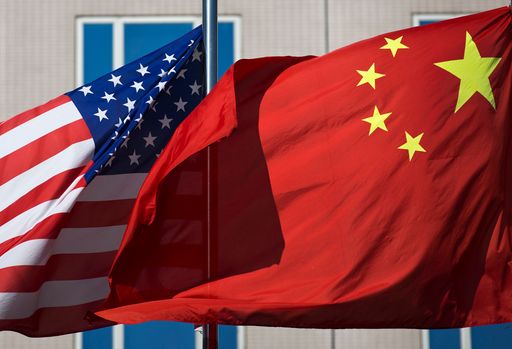US President Donald Trump announced late Saturday that his team had a “very good meeting” on trade with Chinese officials in Switzerland.
He claimed a “total reset” in US-China relations had been achieved.
“A very good meeting today with China, in Switzerland. Many things discussed, much agreed to. A total reset negotiated in a friendly, but constructive, manner. We want to see, for the good of both China and the US, an opening up of China to American business. GREAT PROGRESS MADE!!!,” Trump wrote on Truth Social.
The first day of the trade talks concluded in Geneva with discussions set to resume Sunday, the Wall Street Journal reported. The meeting, which began at 10 am local time (0800GMT) and included a lunch break, ended around 8 pm, lasting at least eight hours, according to the newspaper.
No statements were issued afterward, and details on the content or tone of the talks were not made public.
The US was led by Treasury Secretary Scott Bessent and Trade Representative Jamieson Greer, while Vice Premier He Lifeng headed the Chinese team.
The discussions are the first-time senior officials from the world’s two largest economies have met face-to-face to tackle the thorny topic of trade since Trump slapped up to 145 percent on Chinese imports.
Beijing responded with retaliatory duties of up to 125 percent on certain American products.

Ahead of the meeting, Trump signalled he might lower the tariffs, suggesting on social media that an “80% Tariff on China seems right!”
However, his press secretary Karoline Leavitt later clarified that the United States would not lower tariffs unilaterally and that China would also need to make concessions.
An important step
The first day of negotiations occurred on Saturday at the residence of the Swiss ambassador to the United Nations in Geneva, a discrete villa with sky blue shutters near a large park on the left bank of Lake Geneva.
Going into the meeting, both sides played down expectations of a major change in trade relations, with Bessent underlining a focus on “de-escalation” and not a “big trade deal”, and Beijing insisting the United States must ease tariffs first.
A commentary published by China’s state news agency Xinhua called the talks “an important step in promoting the resolution of the issue”.
The fact the talks are even happening “is good news for business, and for the financial markets,” said Gary Hufbauer, a senior non-resident fellow at the Peterson Institute for International Economics (PIIE).
But Hufbauer cautioned he was “very sceptical that there will be any return to something like normal US-China trade relations,” with even a tariff rate of 70 to 80 percent still potentially halving bilateral trade.
Trade talks
China’s vice premier went into the discussions buoyed by Friday’s news that China’s exports rose last month despite the trade war. The unexpected development was attributed by experts to a re-routing of trade to Southeast Asia to mitigate US tariffs.
Among some of the more moderate Trump officials like Bessent and Commerce Secretary Howard Lutnick, “there’s a realisation that China is better equipped to deal with this trade war than the US,” said Hufbauer.
“I think it’s quite possible they’ll walk away from Geneva saying how constructive and productive the talks were, but not actually reducing tariffs at all,” Hufbauer added.
The Geneva meeting comes after Trump unveiled a trade agreement with Britain, the first deal with any country since he unleashed his blitz of global tariffs. The five-page, non-binding deal confirmed to nervous investors that the United States is willing to negotiate sector-specific relief from recent duties, but maintained a 10 percent baseline levy on most British goods.
Following the US-UK trade announcement, analysts have voiced pessimism about the likelihood that negotiations will lead to any significant changes in the US-China trade relationship.
“These talks reflect that the current state of the trade relations with these extremely high tariffs is ultimately in the interests of neither the United States nor China,” Citigroup global chief economist Nathan Sheets told AFP, calling the tariffs a “lose-lose proposition.”
“It’s nice that they’re talking. But my expectations for the actual outcomes of this first round of talks is pretty limited,” Sheets said.



















